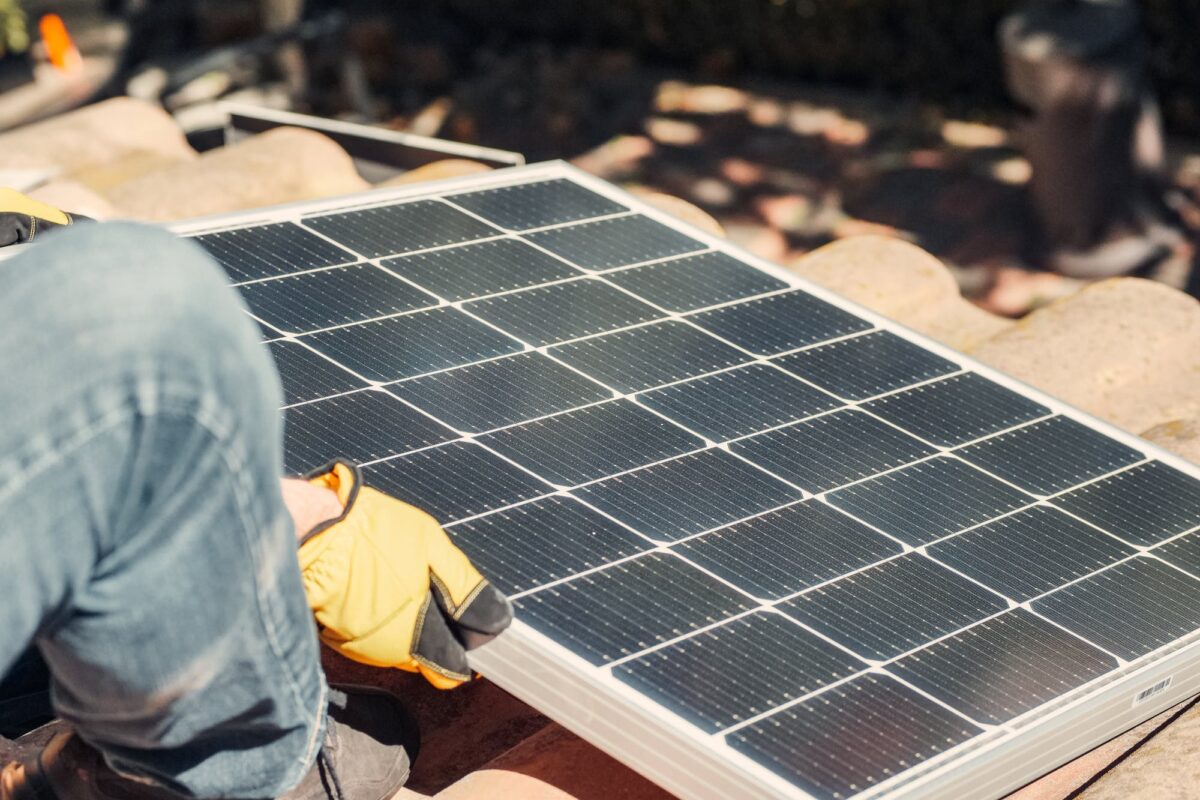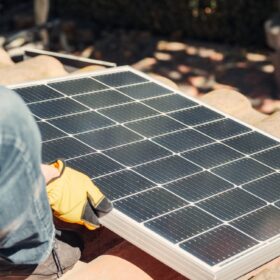Louisiana Gov. Jeff Landry signed bill HB 459 into law, creating setback and siting requirements following the state’s surge in the state’s utility-scale solar projects.
The new law grants permitting authority to the Department of Energy and Natural Resources for solar projects on at least 75 acres of land.
The act creates setback requirements for solar projects that are on at least 75 acres of land, unless they are completely within an industrial-zoned area or are a Louisiana Economic Development-certified site, which include:
- 300-foot setbacks from the property line for residential properties adjacent to solar facilities, with 35-foot new planting or 50-foot natural vegetative barriers.
- 100-foot setback from natural and navigable waterways.
- 50-foot setback from public roads with 35-foot vegetative barrier.
The act also prohibits noise greater than 10 decibels above the pre-construction ambient noise level at the property line.
(Read: Sounds from the sun: Addressing acoustics for solar harmony)
Additionally, the act requires solar projects on at least 75 acres of land to have a buffer of native vegetation to conceal the project from view from adjoining properties. The buffers will need to be stamped by a licensed landscape architect or horticulturalist prior to permitting.
However, the bill was also amended to allow landowners to opt out of siting requirements under a written agreement with the solar project’s operator.
The act allows parish governments to create their own siting requirements and to opt out of state siting requirements by resolution. As the act does not specify otherwise, this may open the door to local governments creating more restrictive requirements.
The new law also allows the Department of Agriculture and Forestry and the Department of Wildlife and Fisheries to comment on solar projects.
The amended bill, which will apply to facilities constructed after Jan. 1, 2026, passed the House 75 to 18 and the Senate 32 to 3 before it was sent to the governor and signed into law.
The legislation originally only prohibited permits for renewable energy projects without proof of financial security and a decommissioning plan, certain permits prior to installing batteries, among a few other minor requirements, but was amended to impose a greater set of restrictions.
The act comes after a sudden boom in Louisiana’s utility-scale solar market, leaving many parishes to wrestle with how to go about regulating the state’s utility-scale solar projects.
For example, a local solar project left a parish divided over whether to allow a 10 MW solar project on 1,200 acres of farmland, with some arguing it would be an eyesore, a safety hazard and would take up valuable agricultural land. Others argued landowners should be able to do what they want with their land and that the project was clean and safe.
Legislators introduced a bill in response to these particular incidents, but it ultimately did not pass, with the House divided 46 to 53. The bill was more comprehensive than HB 459, the legislation signed into law, imposing a greater number of restrictions and setback requirements for solar projects on at least 10 acres of land instead of HB 459’s 75 acres.
Last year, the Louisiana Public Service Commission issued a rule to give large commercial and industrial customers in the state a new way to access up to 500 MW of renewable power, stating that customers need renewable power “in order to remain competitive.” Corporations have power purchase agreements with many of the state’s largest solar projects. For example, McDonald’s is the sole offtaker for a 180 MW solar project that recently became operational and Microsoft is the sole offtaker of the 98 MW Bayou Galion Solar project.
Read about other solar-related bills state lawmakers debated this legislative session here.
This content is protected by copyright and may not be reused. If you want to cooperate with us and would like to reuse some of our content, please contact: editors@pv-magazine.com.









By submitting this form you agree to pv magazine using your data for the purposes of publishing your comment.
Your personal data will only be disclosed or otherwise transmitted to third parties for the purposes of spam filtering or if this is necessary for technical maintenance of the website. Any other transfer to third parties will not take place unless this is justified on the basis of applicable data protection regulations or if pv magazine is legally obliged to do so.
You may revoke this consent at any time with effect for the future, in which case your personal data will be deleted immediately. Otherwise, your data will be deleted if pv magazine has processed your request or the purpose of data storage is fulfilled.
Further information on data privacy can be found in our Data Protection Policy.